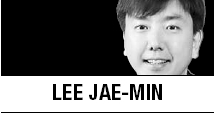Pointed statements were exchanged between Soviet Ambassador Andrei Gromyko and U.S. Secretary of State James Byrnes at the first U.N. General Assembly meeting of Jan. 12, 1946. The touchy topic on the agenda was how to select six non-permanent members of the Security Council in compliance with the principle of “equitable geographical distribution” as agreed upon in the San Francisco Conference.

New Zealand was particularly vocal, fearing that the region of the South Pacific would not be adequately represented in any of the geographical segments, and suggested Australia be included in the mix. Australia, however, had to go through intense competition with Canada (three rounds of voting), a fellow British Commonwealth country, to grab the final seat. Brazil, Poland, Egypt, Mexico, the Netherlands and Australia were those elected that afternoon to the Security Council as non-permanent members.
Ever since, the competition among countries to join the Security Council as non-permanent members with a two-year term has always been intense. Six non-permanent members together with the five fixture permanent members (possessing veto power) constituted the U.N.’s executive body, so to speak. The membership subsequently increased to the current 15 in December 1963. For the 10 seats, five countries are elected each year.
This year’s competition in the Asia-Pacific Group to replace India, whose term expires at the end of the year, was among Korea, Bhutan and Cambodia, with Korea prevailing after the second round of voting. Those elected with Korea on Oct. 19 at the U.N. General Assembly were Australia, Argentina, Rwanda and Luxembourg. Korea’s election to the U.N. body was the second time after its participation in 1996-1997.
By all accounts, Korea’s election this time around is all the more important than its first tour 17 years ago. Korea was still a newcomer: that was only five years after Korea’s accession to the U.N. in 1991. The situation in the world community was relatively stable after the Cold War. Seventeen intervening years have brought sea changes. Compared to the situation in 1996-1997, this time Korea is well-known and in a position to be able to contribute more to the cause of the Security Council.
For the next two years, it is quite likely that the Security Council will have to deal with a long list of controversial issues and volatile situations. In the face of the critical issues, different views are sometimes expressed by members of the council, and Korea could play a role to bridge the gap in these instances. In many respects, Korea is positioned to play such a “supportive role” in the discussions of global issues as shown in its participation in other fora.
Korea’s prospective participation in the discussions on issues relating to North Korea is yet another reason why the last week’s election is meaningful. More so, given that the next two years will be a decisive period for future inter-Korea relations under the new leaderships of the two Koreas.
Korea’s joining of the Security Council also means a lot of homework to be done. As a member of the Security Council, Korea is expected to be more actively engaged in making and enforcing the decisions of the Security Council. It reminds us the difficult juggling Korea has manage since 2011 with respect to the Security Council sanctions on Iran, a significant trade partner of Korea. More and more similar issues will come Korea’s way. Seoul will also be put in a tight-spot in the case of U.S.-China confrontation on the council, say over the Syria issue. Korea should also more actively consider increasing its still lukewarm ODA package. Of course, more active participation in peacekeeping operations cannot be forgotten either. The news that the government is planning to increase the staff at its mission in New York is a welcoming beacon at the moment.
By Lee Jae-min
Lee Jae-min is a professor of law at the School of Law, Hanyang University, in Seoul. Formerly he practiced law as an associate attorney with Willkie Farr & Gallagher LLP. ― Ed.








